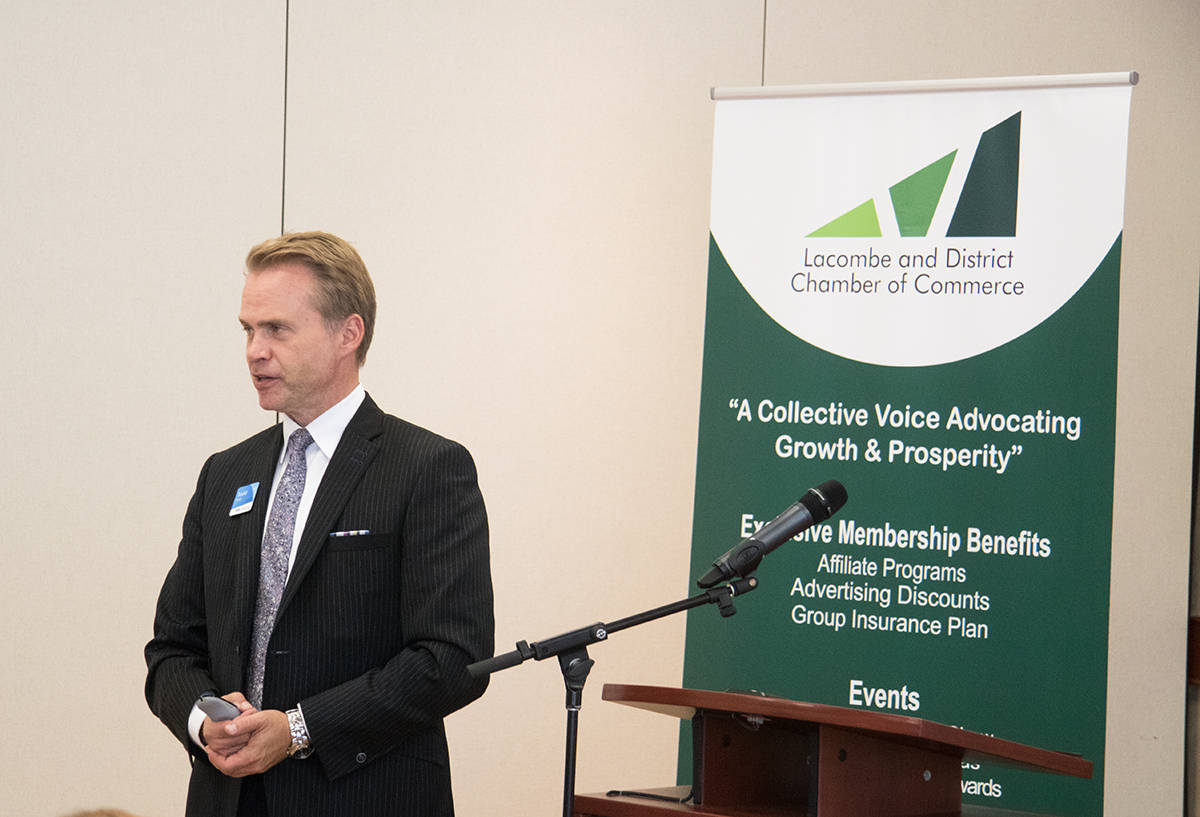Todd Hirsch, chief economist for ATB Financial, was in Lacombe discussing the current Albertan economy and its future.
During the course of his presentation, Hirsch presented ATB’s GDP growth estimates for Alberta, which are 2.6 per cent growth for 2018 and 2.2 per cent for 2019.
The event, put on jointly by the Lacombe and District Chamber of Commerce and the Red Deer and District Chamber of Commerce, focused on three main themes: technology, trade and ‘tyrannosaurus rex’ — the latter being Hirsch’s metaphor for the oil and gas sector.
Hirsch’s began by explaining that technology is currently in the midst of an industrial revolution that includes many industry-disrupting forces like automation, AI, and cloud computing.
Economically, according to Hirsch, these forces will eventually force “rapid, disruptive” change on most industries.
He followed up this explanation of technology by discussing how trade is undergoing rapid change due a reversal of the neo-liberal policies of free trade that have dominated global trade since the early 20th century.
Hirsch explained that the United States election of Donald Trump, Brexit, tariffs and many other policies of trade isolation are symptomatic of this reversal.
Hirsch and other economists believe that this trend will continue into 2019 and beyond.
Finally, and most relevant to Albertans, Hirsch discussed the oil and gas industry and how the industry has changed since the recession began in 2013.
During the recession, real GDP contracted by eight per cent, and Alberta is now coming out of that decline.
Since 2013, however other industries have begun to emerge within the energy sector including the example Hirsch used, solar power, which is now below 30 cents per kilowatt — creating a viable competitor to oil and gas, especially in big tech markets in the U.S.
On top of that, Hirsch and other economists predict that global peak oil demand will come within the next five to seven years.
Given that, Hirsch said that Albertans can continue to rely on oil and gas as a backbone for the economy but not as its chief growth engine.
Hirsch did say, however, that while electric vehicles, solar power and other energy competitors can be disruptive, he doesn’t expect this to be the death of the oil and gas energy sector.
His optimism comes from Albertans’ ability to adapt to industrial changes, their ability to rise to challenges, the fact that the oil and gas industry is currently succeeding in a low-cost environment and that he believes Albertans will find diverse new markets of trade.
Hirsch recognized that 2.6 per cent and 2.2 per cent are around half the yearly growth Alberta went through prior to 2013, however he is confident that Alberta is undergoing more sustainable growth.
Part of the reason for this sustainability is that much of the growth has came from different industries including agriculture and agrifoods, tourism, technology and transportation and logistics.
Hirsch noted that unemployment remains higher that economists would like at around 5 per cent, but did note that many jobs are coming to Alberta that are different than the ones prior to 2013.
This has created a different composition of the job market.



